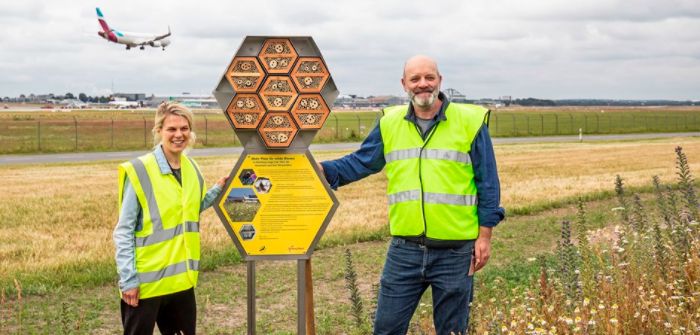Germany’s Hamburg Airport is celebrating the 20th anniversary of its honey project, over the course of which more than 200,000 honey bees have collected nectar and pollen to produce around 12,000 jars of honey.
Honey, wax and pollen from the project are regularly tested in independent laboratories, to ensure they comply with the provisions of the German honey ordinance for edible honey and the quality guidelines of the German Beekeeping Association.
“But it’s not just the honey bees that deserve our protection and attention,” said Ingo Fehr, Hamburg Airport’s beekeeper and environmental engineer. “Wild bees also contribute significantly to the pollination of flowering plants.”
Around half of the 580+ species of wild bees are endangered, experts have estimated. Urban beekeeping can counteract this trend. In 2014 Hamburg Airport launched a wild bee project, working with the Deutschen Wildtier Stiftung (German Wild Animal Foundation), in a bid to increase the habitat of the endangered insects. Last year, the initiative became an official project within the framework of the UN Decade on Biological Diversity.
Measures undertaken across the airport campus, which Fehr describes as one of the largest green spaces in the city, include sowing different flowers, creating small-scale raw soil areas and building insect hotels.


